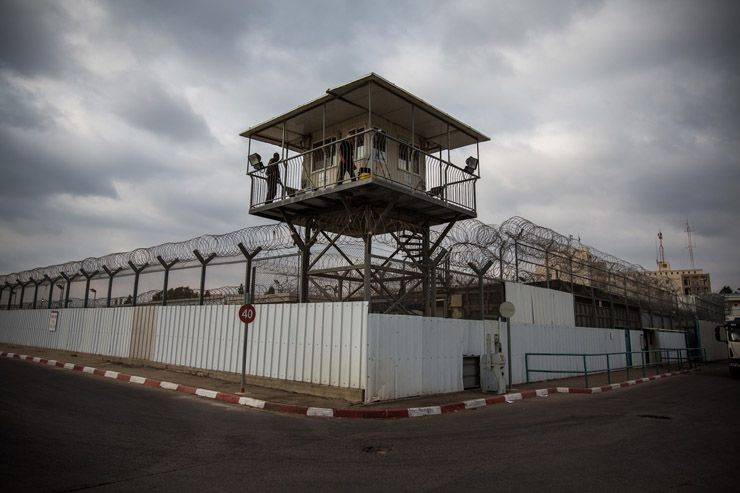Six Palestinians died in custody in recent weeks, including two in Megiddo Prison, one in Ktzi’ot, one in Ofer, and two others who were being illegally held by the military after their work permits were revoked.

Since the October 7 attacks, we’ve been receiving reports from families and legal representatives of Palestinians held in Israeli incarceration settings, all describing incidents of severe violence at the hands of prison officers. Concurrently, Israel Prison Service officials and National Security Minister Itamar Ben-Gvir boasted to the press about violating the rights of Palestinians in prisons. Soon after, media reports revealed a worsening in the incarceration conditions of Palestinians, including cutting off electricity and water and the imposition of “lockdown mode” restrictions, which include the removal of telephones, televisions, and other electrical devices from prison cells.
Six Palestinians died in custody in recent weeks, including two in Megiddo Prison, one in Ktzi’ot, one in Ofer, and two others who were being illegally held by the military after their work permits were revoked. Physicians volunteering with PHRI participated in the autopsies of three of the deceased Palestinians. Two of them, aged 25 and 58, suffered from preexisting chronic conditions for which they seemingly did not receive vital treatment. A third appears to have been attacked by IPS officers, according to the testimonies of individuals who were later released from custody.
These incidents come amid mounting first-hand accounts of humiliation, violence, and torture of Palestinians in Israeli incarceration settings. In addition, we’ve reviewed shocking videos that were circulated on social networks, depicting severe abuse and torture of Palestinians under Israeli custody. Some of the videos were filmed by the soldiers carrying out the arrests, while others were recorded by officers within incarceration settings. Despite the severity of the footage and our repeated contact requests, IPS officials refused to address these alleged abuses.
Various statements by senior IPS officials (directed by the national security minister) and evidence gathered in recent weeks underscore the realization that the IPS is no longer operating a lawful incarceration system. Rather than protect the “well-being, safety, and dignity” of all individuals under its custody, the IPS has transformed into a vindictive body lacking any oversight or transparency – with the sole aim of abusing and terrorizing Palestinians held in its prisons.
Furthermore, since October 7, Palestinians in Israeli incarceration settings have been severed from the outside world. Attorney visits are strictly limited, Red Cross representatives are not allowed in, and family visits are prohibited. The banning of all external communications poses severe threats to the safety of Palestinians in prisons, as it does not allow any monitoring or oversight of their safety and health conditions. These circumstances are particularly dangerous given an Israeli political climate willing to accept the harming of Palestinians, especially those held in prison.
Though state officials and courts have ignored our appeals (along with those of other rights groups) to prevent these atrocities, we will continue our struggle to expose the ongoing violence and human rights violations. We will continue urging local and international bodies to end the assault, abuse, humiliation, and torture of all Palestinians in Israeli incarceration settings.
